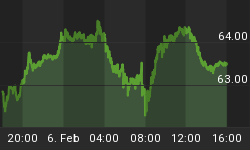Investors beware: The smell of a correction is heavy in the air. Even after the "Flash Crash" on May 6th, there are serious signs that the market is just beginning to recognize the current weakness in economies around the world, including that of the US.
Considering that we may very well be standing on the precipice of a substantial market correction, investors would be wise to consider this time to take earnings out of the market and begin accumulating cash positions.
After all, we've had a very nice run since the stock market bottomed in March of 2009. Fourteen months and more than 70% later, the market appears to be recognizing that there has been little or no real economic recovery to justify current prices - a fact we have reminded readers of for nearly a year.
Among other indicators, commodity prices are especially insightful about current economic weakness. The prices of oil and base metals have proven weak, and gold, despite hitting all-time highs earlier this month, has shown weakness since, as have gold stocks. [For more on this subject, see last week's article: Buying the Bull.] Even Jim Sinclair, a precious metals specialist and perhaps the authority on gold, has admitted in recent commentaries that gold may be in for some tough times ahead.
Proving particularly troublesome for commodities are the recent worries about ETFs. In many cases, investors are beginning to study ETFs closer, and are finding that, in many cases, they did not own what they thought. In some cases, they own nothing at all - except the promise of some unknown counterparty.
Exchange Traded Funds have been getting significant attention - and not the good kind - since the Flash Crash, as they were among the biggest losers. Of all the trades that were nullified by exchange officials following the May 6th turmoil, ETF trades accounted for more than 70%.
The basic concept having to be relearned following the Flash Crash is that technology (e.g.: computerized trading) and derivatives (e.g.: ETFs) simply do not mix. [Note: ETFs fall in the category of derivatives because share prices in ETFs are derived from the prices of underlying securities. However, shares in ETFs do not represent actual ownership of a portion of the fund's holdings.]
Oddly enough, this mix of derivatives and technology comprised the essence of portfolio insurance (a product that has since gone by the wayside) in 1987. For those who don't remember, portfolio insurance played a HUGE role in the 22% single-day decline on Black Monday in October of '87.
When it comes to investments, it is our opinion that there is only one computer with the capacity to make sound decisions, and it is found between the ears. After all, financial markets are NOT the study of mathematics, on which all complex trading algorithms are based. The financial markets are a study of behavioral psychology, and must be treated as such.
Over a year ago we wrote, but feel obligated to remind readers, that the only people who benefit from exotic new financial products (e.g.: ETFs, CDOs, CMOs) are the financial engineers who get paid to design them and the brokers who sell them. Quite frequently, even the designers fail to understand the implications of their inventions, as do most of the reps getting paid to push these products on the unsuspecting public.
We continue to feel that this will come out as a result of the SEC's investigations into major Wall Street firms including Goldman Sachs, UBS, Deutsche Bank, JP Morgan Chase, Citigroup (which owns Smith Barney along with Morgan Stanley), Credit Suisse, Merrill Lynch, and Morgan Stanley. When the dust finally settles, the public will also be keenly aware of these firms' [lack of] fiduciary responsibility that allowed them to get rich at the expense of their clients.
Obviously Goldman Sachs seems to be an especially strong focus of attention from regulators, and the firm will probably fare far worse than many of its peers. Judging by everything that has come out so far about this major Wall Street player, it seems they brought it on themselves. According to a recent Bloomberg article, in the first quarter of this year Goldman was able to make trading profits every single day, while its clients have lost money in seven of Goldman's nine "recommended top trades for 2010" (Xie, Goldman Sachs Hands Clients Losses...).















